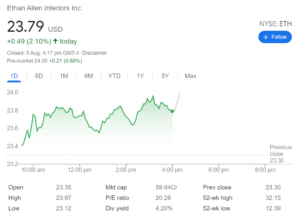I spent a lot of last week (Sibos week) thinking about programmable money. What its reach and impact may be and how important regulation is to help us avoid the dystopian scenarios that are looming large in my own brain.

Programmable money could lead to some dystopian scenarios
This stuff scares me. And it scares me for two reasons.
The first one is large scale and sweeping.
Historically, when humans had a chance to control, subdue and take advantage of each other, they generally have. Sometimes it was brazen. Sometimes it was in the name of a greater good. But the net result is usually 1-0 in favour of despotism.
Although I believe in the goodness in most of us, I also believe that most people are indifferent to the nameless masses they don’t identify with, and it’s very easy to not get riled up about things happening to other people – and that covers environmental disasters on the other side of the world or poverty across town from us.
Also, I know that there will always be a small minority that is willing to go where the rest of us won’t. And the damage they cause is disproportionate to their numbers.
It takes one despot.
One criminal.
One person willing to harm.
So. This stuff scares me.
And there is a second reason why it scares me, which is more mundane, and all the more sinister for it.
Cast your mind back to the early years of finance as we understand it now.
The time before derivatives existed.
The time before puts and calls.
The time before risk hedging became a science expressed in mathematical formulae.
What happened between then and now?
I am about to over-simplify but, really, three things happened, pretty much simultaneously:
- The market did what the market does
It sought to make money from the art of the possible. Today that may be unlocking technological capability. In the past it used to be a quaint obsession with tulips.
Investing in tulip futures is opportunistic. And cute. Until you realise the amount of money that changed hands at the time, the fortunes made and destroyed and the lasting and profound impact it had on finance as we understand it. And society. And history.
But the main take away is: the market is opportunistic. It will look for a way in. That is its job.
- Geeks will do their thing
Some of the financial instruments we trade today are made up of so many layers of abstraction that trying to understand how they tie back to real commercial activity is an exercise in futility.
They are better understood as conceptual masterpieces crafted by mathematicians going to town doing the thing that they are good at. They have internal logic – I am still talking about the instruments, but it applies to the mathematicians too, truth be told – and they are taking the art of the possible and running with it.
That is what happened with trading instruments.
That is what is happening with programmable money.
The art of the possible is meeting hugely talented scientists, geeks and creators who are in a lab with a clear mission to play around and see what gives. They are not tasked with or inclined to think about societal impacts, monetary policy or morality any more than the tulip traders were.
Which doesn’t mean they don’t. It just means it’s not the job at hand.
Best case scenario, they think someone above their pay grade is thinking about that stuff.
Spoiler alert: they are not.
- Regulation is a post facto thing
And how can it not be?
How can you regulate something before it exists? And do you even want to come in too soon and hamper creativity? Stop a thing before it even happens?
That’s how our regulatory mindset works, and I have no beef with it.
My problem is that regulation isn’t the answer. Because no regulator is tasked with thinking about the impact of their remit on the human condition. The global ramification on human liberty, civilisation maturity, poverty and climate change.
And it would be fair to say that the decisions made in bourse and exchange buildings and offices the world over during the span of the last couple of centuries have had effects so sweeping and so profound that it is impossible to connect the work of an individual 18th century speculator in Antwerp, a financier in the city of London in the early 1900s or a quant in New York in the early 80s, but also impossible not to.
Because the pattern of someone geeking out on the art of the possible and the regulator putting guard rails around it when it gets big enough is undeniable. And the line between that pattern and sweeping socioeconomic and environmental knock-on effects is linear and impossible to deny.
Is it up to the quant to think about the fate of humanity?
It is not an idle question.
There are very smart people playing around with programmable money all over the world as we speak. So this is pertinent and urgent.
There are multiple experiments underwritten by central banks, figuring out what is possible, what is helpful, what is useful. The experiments are not wrapped in language, I suspect, that highlights their potential impact on the future of humanity. Because it’s not up to a team of seven engineers or one regulator to save the world.
Or is it?
Because nobody is tasked with this. So nobody is doing it.
And we are playing around, furthering human knowledge, riffing off the art of the possible with the market-expanding opportunism that builds economies. And the regulator is looking at the piece they are tasked with. But nobody asked the FCA to guard our liberty and the future of our decision-making as citizens.
If programmable money can make it possible to cut people off from whole swathes of activity, box them into lives not of their choosing and dictate the way and the order in which they make life choices, then who is protecting our rights, as humans, to have free will? Make mistakes? Make terrible choices occasionally?
Nobody. That’s who.
Because money that won’t work on alcohol until you have paid your rent doesn’t sound terrible, perhaps. But just allow your mind to jog down the path of what else would be possible by the same – the exact same – technical capability being deployed in different scenarios. Not because anyone working on this is sinister, but because nobody working on this is thinking about those who are.
We know about the law of unintended consequences.
We are ignoring it at our own peril.
And time is running out.
#LedaWrites

Leda Glyptis is FinTech Futures’ resident thought provocateur – she leads, writes on, lives and breathes transformation and digital disruption.
She is a recovering banker, lapsed academic and long-term resident of the banking ecosystem. She is chief client officer at 10x Future Technologies.
All opinions are her own. You can’t have them – but you are welcome to debate and comment!
Follow Leda on Twitter @LedaGlyptis and LinkedIn.
Source: https://www.fintechfutures.com/2021/10/the-law-of-unintended-consequences/
- ADvantage
- Alcohol
- All
- around
- Art
- Banking
- Banks
- Beef
- Box
- Cause
- Central Banks
- change
- chief
- City
- Climate change
- commercial
- Couple
- creativity
- creators
- Criminal
- debate
- Derivatives
- destroyed
- DID
- digital
- disasters
- Disruption
- Early
- ecosystem
- Engineers
- environmental
- exchange
- Exercise
- fair
- FCA
- finance
- financial
- fintech
- First
- fortunes
- Free
- future
- Futures
- Global
- good
- history
- How
- HTTPS
- Humanity
- Humans
- identify
- Impact
- IT
- Job
- knowledge
- language
- large
- Law
- lead
- Liberty
- Line
- London
- Market
- minority
- Mission
- money
- net
- New York
- numbers
- Officer
- Opinions
- order
- Other
- Pattern
- Pay
- People
- policy
- Poverty
- Quant
- reasons
- Regulation
- regulatory
- Rent
- REST
- Risk
- running
- Scale
- Science
- scientists
- small
- smart
- So
- Society
- talking
- Technical
- Technologies
- The Future
- the world
- Thinking
- TIE
- time
- trade
- Traders
- Trading
- Transformation
- us
- week
- What is
- WHO
- Work
- works
- world
- years




